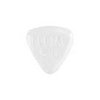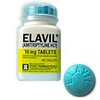Do not use any other over-the-counter cold, allergy, or pain medication without first asking your doctor or pharmacist. Many medicines available over the counter contain aspirin or other medicines similar to Voltaren (such as ibuprofen, ketoprofen, or naproxen). If you take certain products together you may accidentally take too much of this type of medication. Read the label of any other medicine you are using to see if it contains aspirin, ibuprofen, ketoprofen, or naproxen.
Do not use this medication if you are allergic to Voltaren, or if you have a history of allergic reaction to aspirin or other NSAIDs.
Do not drink alcohol while taking Voltaren. Alcohol can increase the risk of stomach bleeding caused by Voltaren.
Avoid prolonged exposure to sunlight. Voltaren may increase the sensitivity of the skin to sunlight. Use a sunscreen and wear protective clothing when exposure to the sun is unavoidable.
Voltaren can increase your risk of life-threatening heart or circulation problems, including heart attack or stroke. This risk will increase the longer you use Voltaren. Do not use this medicine just before or after having heart bypass surgery (also called coronary artery bypass graft, or CABG).
This medicine can also increase your risk of serious effects on the stomach or intestines, including bleeding or perforation (forming of a hole). These conditions can be fatal and gastrointestinal effects can occur without warning at any time while you are taking Voltaren. Older adults may have an even greater risk of these serious gastrointestinal side effects. Call your doctor at once if you have symptoms of bleeding in your stomach or intestines. This includes black, bloody, or tarry stools, or coughing up blood or vomit that looks like coffee grounds.
If you have any of these other conditions, you may need a dose adjustment or special tests to safely take Voltaren:
- a history of heart attack, stroke, or blood clot;
- heart disease, congestive heart failure, high blood pressure;
- a history of stomach ulcers or bleeding;
- asthma;
- polyps in your nose;
- a bleeding or blood clotting disorder; or
- if you smoke.
FDA pregnancy category C. This medication may be harmful to an unborn baby. Tell your doctor if you are pregnant or plan to become pregnant during treatment. Taking Voltaren during the last 3 months of pregnancy may harm the unborn baby. Do not take Voltaren during pregnancy unless your doctor has told you to. Diclofenac can pass into breast milk and may harm a nursing baby. Do not use this medication without telling your doctor if you are breast-feeding a baby. Do not give this medicine to a child without the advice of a doctor.
Tell your doctor if you are taking an antidepressant such as citalopram (Celexa), duloxetine (Cymbalta), escitalopram (Lexapro), fluoxetine (Prozac, Sarafem, Symbyax), fluvoxamine (Luvox), paroxetine (Paxil), sertraline (Zoloft), or venlafaxine (Effexor). Taking any of these drugs with Voltaren may cause you to bruise or bleed easily.
Before taking Voltaren, tell your doctor about all other medications you use, especially:
- a blood thinner such as warfarin (Coumadin);
- cyclosporine (Neoral, Sandimmune);
- lithium (Eskalith, Lithobid);
- methotrexate (Rheumatrex, Trexall);
- diuretics (water pills) such as furosemide (Lasix).
- steroids (prednisone and others);
- aspirin or other NSAIDs such as ibuprofen (Motrin, Advil), diclofenac (Cataflam, Voltaren), etodolac (Lodine), indomethacin (Indocin), meloxicam (Mobic), nabumetone (Relafen), naproxen (Aleve, Naprosyn), piroxicam (Feldene), and others; or
- an ACE inhibitor such as benazepril (Lotensin), enalapril (Vasotec), fosinopril (Monopril), lisinopril (Prinivil, Zestril), quinapril (Accupril), ramipril (Altace), and others.
This list is not complete and there may be other drugs that can interact with diclofenac. Tell your doctor about all the prescription and over-the-counter medications you use. This includes vitamins, minerals, herbal products, and drugs prescribed by other doctors. Do not start using a new medication without telling your doctor.







